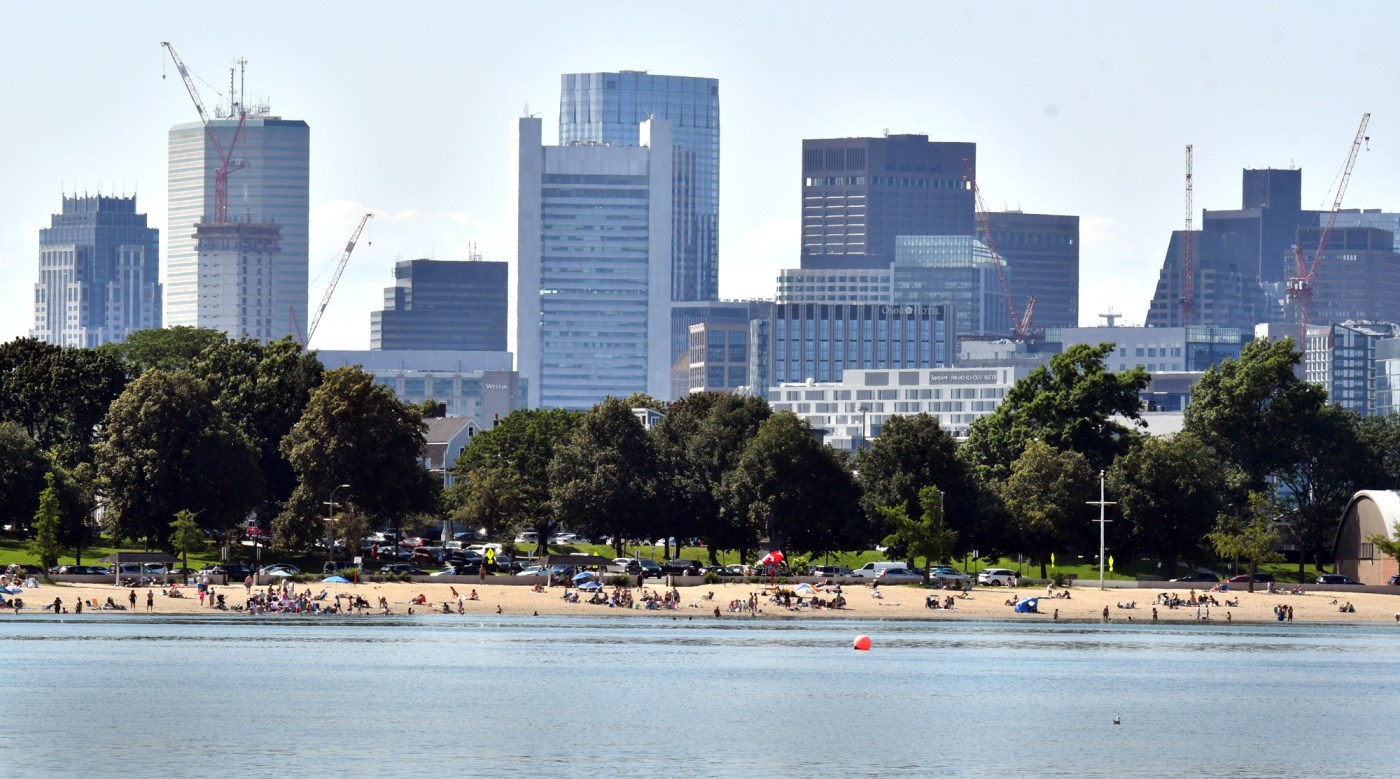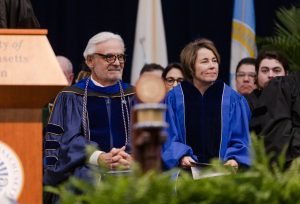
Boston reports $6.35M in unpaid property taxes as Mayor Wu pushes commercial rate increase
Projected budgetary woes in Boston that led Mayor Michelle Wu to roll out a proposal to increase property taxes on businesses beyond the state limit are not driven by unpaid real estate taxes, given city data that shows a 99% collection rate.
Unlike its Big Apple counterpart in New York City, which per a Bloomberg report is forecasted to see overdue property taxes surge to their highest level ever, to more than $880 million by the end of the current fiscal year in June, Boston’s unpaid real estate taxes stand at just $6.35 million in FY23, according to city data.
“For context,” the mayor’s office said in an email that accompanied the data, “the FY23 property tax revenue budget is nearly $3 billion. Outstanding collections of $6.4 million is 0.2% of the overall property tax revenue.”
The data provided is a snapshot of three years’ worth of unpaid property taxes owed to the city, also referred to as “current tax liens.”
While the numbers are comparatively low to what New York is grappling with, the data does show a year-over-year increase in unpaid property taxes in Boston from 2021 to 2023, the years each tax lien was filed at the Registry of Deeds.
Unpaid property taxes totaled just over $6 million in 2022, and roughly $5.67 million in 2021, meaning overdue taxes increased by 4.9% from 2022 to 2023, and nearly 12% from 2021 to 2023, the data show.
The city boasts that its “extremely high” collection rate is due to a “proactive approach of continuously reaching out to taxpayers.”
Overdue property taxes are noticed many times throughout the year, the mayor’s office said, including demands and warrants according to state law.
Related Articles
Canceled meeting at Boston City Hall ends with police injured, one badly bitten
Lowering Boston speed limit won’t slow cars down without street redesign, transit advocate says
Building contractor to meet with district officials at Boston school that smells like ‘poop’
Proposed Shattuck Hospital redevelopment needs to shrink, council told
Boston pushing for 15-20 mph citywide speed limit after pedestrian deaths
The favorable city-issued data comes at a time when Boston is staring down a more than $1 billion budget shortfall in five years driven by declining office values that are eroding the city’s commercial tax base, per a February report issued by Boston Policy Institute and the Center for State Policy Analysis at Tufts University.
The report contends that declining commercial property values will leave the city with a cumulative revenue shortfall of $1.2-$1.5 billion over the next five years, and will result in a “new normal” where annual tax collections starting in 2029 will be roughly $500 million below the current trend.
A spokesperson for Mayor Wu said this week that the premise of the report’s findings was wrong, given that “a decline in commercial property values does not lead to a decline in revenue. It leads to an increase in the tax rate for residential taxpayers.”
The report pointed to two options the city faces to combat the declining commercial revenue, which is to increase taxes for residents by roughly 30% or cut the city budget by 10%, the latter of which the Wu administration has said it will not do.
Rather, the mayor is banking on a home rule petition she put before the City Council this week that would seek to drive down a significant projected increase in residential property taxes, by providing a statewide option allowing municipalities to shift more of the tax burden from residents to businesses, exceeding the state cap of 175% up to 200% in the next fiscal year that begins July 1.
The measure, which mirrors what was proposed by Mayor Thomas Menino and signed into law in 2004 in that it provides a tiered shift that would return to the standard 175% state limit in FY29, would need approval from both the Council and state lawmakers. It was referred to a council committee this week for further discussion.
While Wu states that the changes would be revenue-neutral and would not harm the business community which would still see a decrease in property taxes, although not by as much, it has proven to be unpopular among the commercial sector and is already drawing opposition from at least one city councilor.
Mayor Michelle Wu. (Nancy Lane/Boston Herald)


